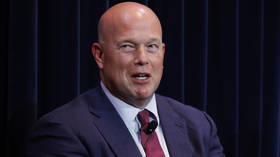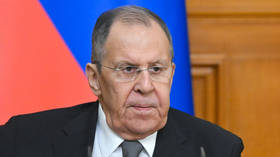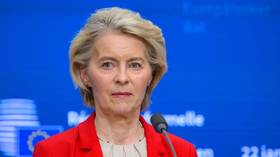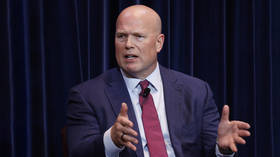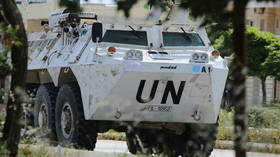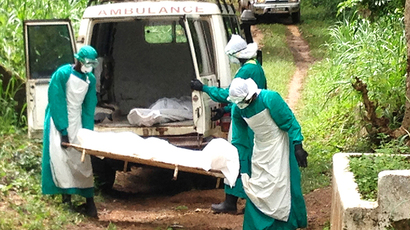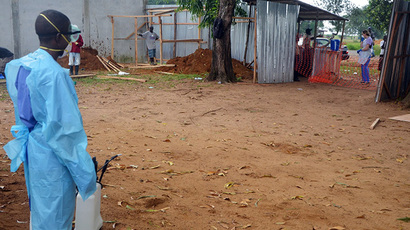'Moral bankruptcy of capitalism': UK’s top public doctor shames western society over Ebola
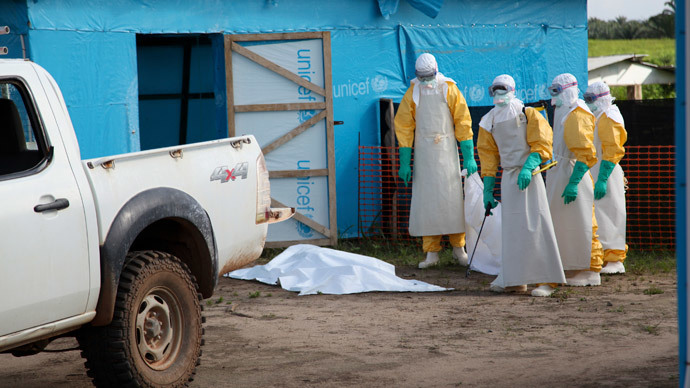
Western countries should tackle drugs firms’ “scandalous” reluctance to invest in research into the virus which has already killed over 700 people in West Africa, the UK’s top public doctor said, adding, “They’d find a cure if Ebola came to London.”
Ebola-infected US aid worker arrives in ‘special isolation unit’ in Atlanta
The pharmaceutical industry are reluctant to invest in research to produce treatments and vaccines “because the numbers involved are, in their terms, so small and don't justify the investment,”said Professor John Ashton, president of the UK Faculty of Public Health, an independent body for specialists in public health in the United Kingdom.
“This is the moral bankruptcy of capitalism acting in the absence of an ethical and social framework,” he wrote in The Independent on Sunday.
“Ebola has finally made it on to the front pages,” he said, adding that it may be because “we are in the ‘silly season,’” or because “there is now the threat of cases other than of poverty-stricken Africans.”
Ashton compared the international response to Ebola to the initial one toward AIDS “which emerged, probably from West Africa, at the same time [with Ebola].” He added that the lack of experience of dealing with the deadly virus means that “the pattern of spread is initially unclear.”
“In both cases it seems that the involvement of powerless minority groups has contributed to a tardiness of response and a failure to mobilize an adequately resourced international medical response.”
Ashton said: “It took years for proper research funding to be put in place” for the researchers to start studying AIDS.
“It was only when ‘innocent’ groups were involved (women and children, hemophiliac patients and straight men) that the media, the politicians and the scientific community and funding bodies took notice.”

Ashton said that most developed countries should be able to cope with any cases of the fatal disease “that turn up in their own backyards.”
“The real spotlight needs to be on the poverty and environmental squalor in which epidemics thrive, and the failure of political leadership and public health systems to respond effectively.”
He added that the international community “has to be shamed into real commitment to the millennium goals for international development if the root causes of diseases like Ebola are to be addressed.”
African troops deployed to contain potentially ‘catastrophic’ Ebola outbreak
On Saturday, one of the two infected US aid workers, Dr. Kent Brantly, who contracted Ebola while working in Liberia, arrived at a hospital in Atlanta, Georgia. Health officials say there is no threat to the public as Brantly will be treated in a special isolated unit.
According to the latest data from the World Health Organization (WHO), the recent Ebola outbreak in four African countries has infected at least 1,323 people and killed at least 729.
The mortality rate for Ebola can be as high as 90 percent, depending on the strain, although the latest outbreak has a mortality rate of 60 percent. The symptoms include acute fever, bleeding and damage to the central nervous system.
Top Ebola doctor dies of virus in Sierra Leone
US researchers started developing a vaccine for Ebola in 2012. Then the study, led by the US Army Medical Research Institute for Infectious Diseases (USAMRIID), showed that Ebola antibody treatment protected monkeys from the lethal disease.
However, in August 2012 the scientists told the media that a commercial vaccine to prevent the infection may never be developed after the US Defense Department suspended the funding of two companies with leading vaccine candidates, Sarepta and Tekmira.
After this year’s Ebola outbreak, the US National Institutes of Health's infectious disease unit started working with US Food and Drug Administration on a vaccine, CNN and USA Today reported. The two governmental bodies aim to test vaccines as early as September after trials on primates were positive.


